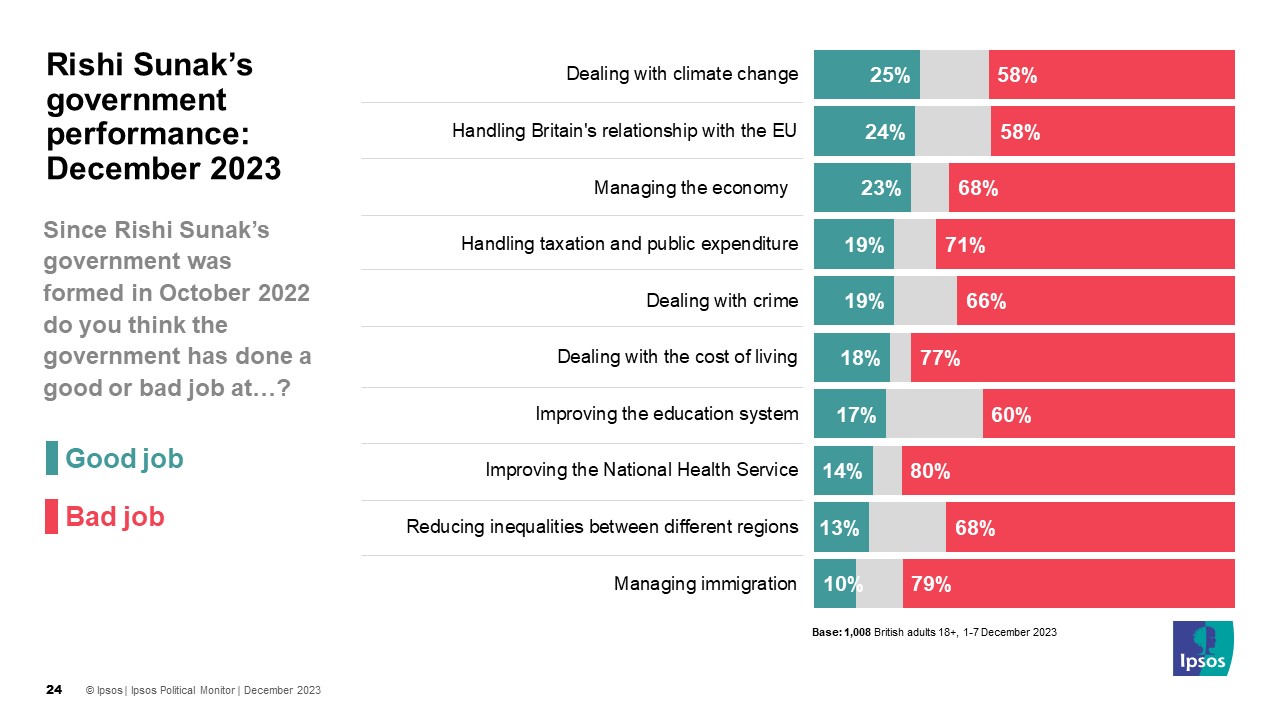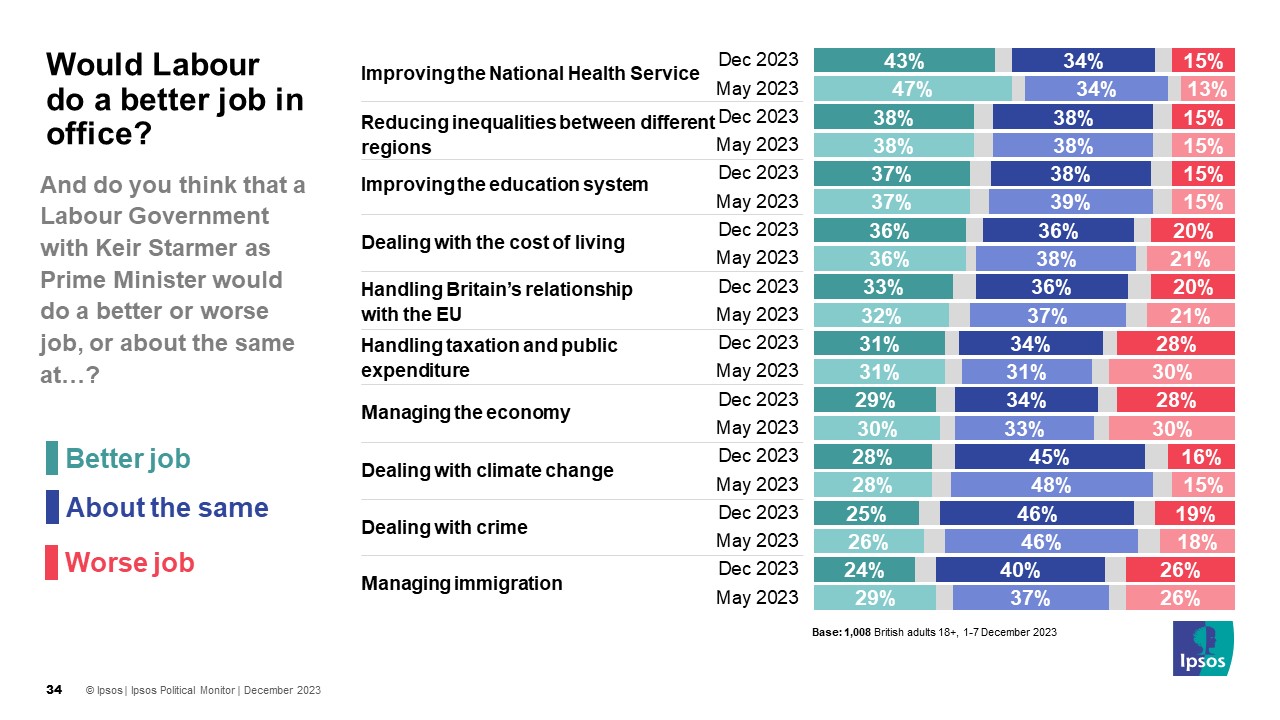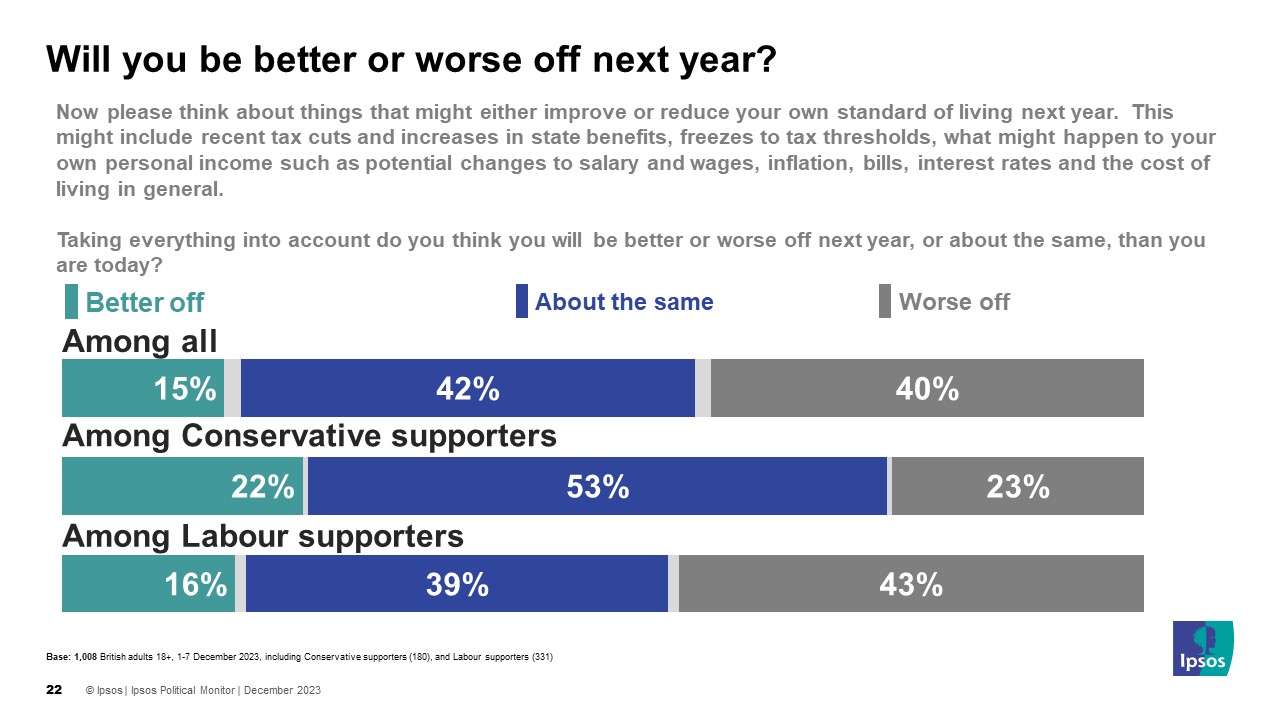Clear majorities think Rishi Sunak’s government has done a bad job on key public priorities such as the NHS and cost of living
The latest Ipsos Political Monitor, taken 1st – 7th December 2023, explores public attitudes to the job Rishi Sunak’s government has done in key areas, whether Labour would do a better job and what impact they think recent changes in the Autumn Statement will have on their personal finances next year.
Sunak government job performance
Clear majorities of the public say that Sunak’s government has done a bad job in key areas of importance to voters. Our monthly Ipsos Issues Index shows that the economy, cost of living, NHS and immigration are the most important issues to the public. 80% think Sunak’s government is doing a bad job improving the NHS, 79% on immigration, 77% on dealing with the cost of living and 68% for managing the economy. In most cases, scores are very similar to those registered in July last year.

Conservative supporters are more sympathetic towards the government’s record than the public overall. For example, 56% think the government has done a good job managing the economy. However, by far the issue that this group think the government has done a bad job on most is immigration. 74% say the government has done a bad job here. A majority of Conservative backers are also critical on the NHS (53%), cost of living (55%), reducing regional inequalities (54%), and crime (56%).
Would Labour do a better job?
When asked if Labour would do a better or worse job on key issues the picture is mixed.
- The public are much more likely to think Labour would do a better job (43%) rather than a worse job (15%) improving the NHS. But 34% think it would do about the same.
- 36% think Labour would do a better job dealing with the cost of living, 20% say they would do a worse job and 36% about the same.
- However, on managing the economy, 29% think Labour would do better, 28% say worse and 34% say about the same.

Tax changes
Following cuts to national insurance and continuing the freeze on tax thresholds in the Autumn Statement, 32% of Britons think they will be paying more tax next year and 14% say they will paying less. 40% think they will be paying about the same.
Meanwhile, taking everything into account (such as tax and benefits changes, salary and wages, inflation, interest rates and so on) 15% expect to be better off next year overall and 40% expect to be worse off. 42% think they will be about the same.

Economic optimism
Ipsos’ net Economic Optimism Index stands at -28, with 22% thinking the economy will improve in the next year (up 3 from last month) and 50% saying it will get worse (down 5). This is the lowest level of pessimism since the end of 2021.
Keiran Pedley, Director of Politics at Ipsos, said:
With the current focus on immigration and the government’s Rwanda bill it is worth remembering that other issues are important to the public too. It will concern the Conservatives that large majorities think Rishi Sunak’s government has done a bad job managing the economy, improving the NHS and dealing with the cost of living. However, although Labour are seen as more likely to do a better than worse job on improving the NHS and cost of living, the public are split on whether they would make a real difference on managing the economy. This, plus the fact many think Labour would be about the same on several issues, suggests there is still work to do for Keir Starmer’s Labour to seal the deal with voters ahead of the next General Election.
Technical Note:
Ipsos interviewed a representative sample of 1,008 adults aged 18+ across Great Britain. Interviews were conducted by telephone between the 1st to 7th December 2023. Data are weighted to match the profile of the population. All polls are subject to a wide range of potential sources of error.






